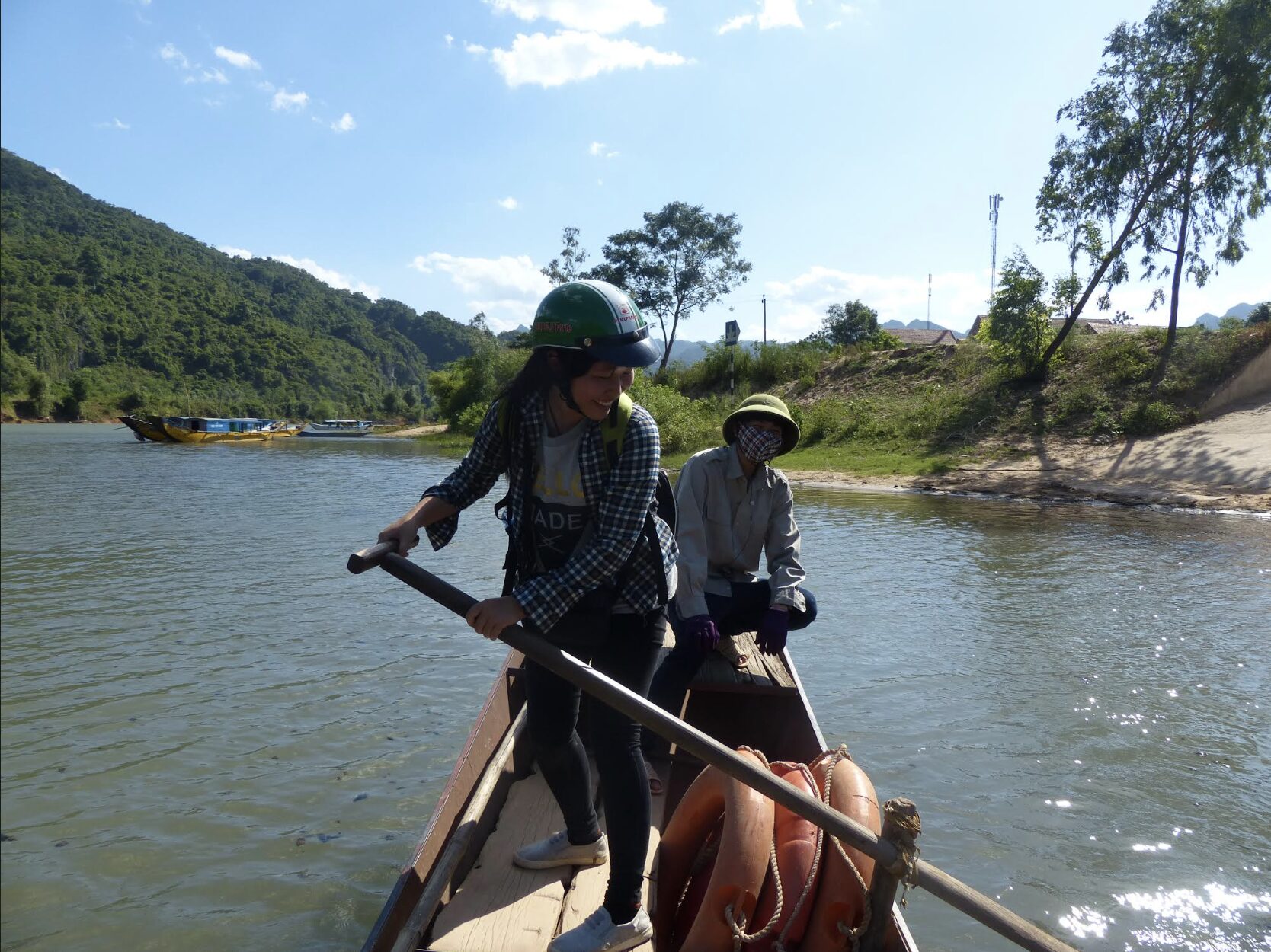
Mai Tran

Mai Tran
A villager once pointed a knife at me and accused me of kidnapping a child.
My heart raced. My brain automatically calculated escape routes – should I run? No. If I ran, he might take it as confirmation. But I could not move anyway. My body froze. I stood still, terrified but trying to stay calm. Slowly, I held out my ID and explained who I was and why I was there. A few villagers backed away. Others stared in silence.
That moment crystallized a truth I had been learning throughout my fieldwork: trust is not something we can demand. It is not granted by credentials, institutions, or intentions. It must be earned–patiently, respectfully, and on the community’s terms.
I was in a remote village in northeast Vietnam doing conservation and forest livelihood research, and this was not the first time I had been met with suspicion. In earlier visits, some villagers had called me a fraud, a reporter, or a trader. Many refused to speak with me at all, shutting their doors, avoiding eye contact. It was painful, but I did not take it personally because behind their fear was something real.
In places where children have disappeared, where trafficking has torn through communities, and where outside “projects” have come and gone with little care for those left behind, distrust is not irrational. It is a form of protection. These communities have been surveyed, studied, promised help, and too often, forgotten. That is when I realized: I could not simply “collect data.” I needed to build relationships. Not with survey instruments or abstract stakeholder categories, but with people—mothers, elders, forest rangers, fruit vendors. I had to earn my place through consistency, care, and humility.
In forest science and social research, we often celebrate “community engagement.” It appears in proposals, presentations, and glossy reports. But in practice, engagement is too often reduced to workshops, consent forms, and checklists. Genuine engagement, I have learned, takes time. Thus, before each field trip, I tried to prepare thoughtfully. I read ethnographies, studied local customs, memorized greetings in Indigenous languages. I met with commune officers and village leaders, explained my plans, and asked for their support. However, books and formalities did not open doors – presence did.
So I adapted to local rhythms. I joined morning tea with elders, walked the village paths at dawn with families tending livestock, and made time to greet everyone I saw with warmth. When visiting households, I brought small gifts for children – books, milk, or local fruit – not to buy favor, but to show respect for their time. And I always say thank you.
I did not move through villages as a researcher with a clipboard. I moved as a guest, aware that my presence carried weight. Before any interview, I first went to the commune office, then the village leader to share my plan and ask for permission. I always remembered names, took their contact information, and followed up. Trust, after all, is built on the little things.
Eventually, villagers began inviting me in, not just to talk, but to share meals. I was sent home with dried bamboo shoots, wild honey, and medicinal herbs as signs of care and acceptance. I still remember one trip home from the field, when my motorbike was so full I had to carefully balance two burlap sacks strapped behind me, filled with gifts from different households. That ride made me realize something deeper: I had been received, not just as a researcher, but as a person. And with that warmth came responsibility – to carry their trust with care, and to give something meaningful in return.
Scientific research often relies on technical terms: carbon sequestration, ecosystem services, and biodiversity indicators. However, in the field, the most powerful tool I carried was not a GPS unit, it was a willingness to listen. For me, conservation and forest science are not just about landscapes. They are about relationships – with people, places, and the meanings they attach to the land. That is something we cannot fast-track. It requires reciprocity.
I have seen well-funded projects collapse not because they lacked science, but because they lacked trust. Local people were called “stakeholders” but never truly heard. Promises of participation were broken. Cultural knowledge was mined, published, and never returned. These are not small oversights, they are ethical failures.
It is time we rethink the way we engage with communities in research. Not as subjects or sources of data, but as research partners. In many Indigenous and rural traditions, learning is not extractive; it is relational. A gift given should be returned, not necessarily in kind, but in spirit. The gifts did not ask anything of me, but the gesture and meaning behind them compelled me to carry myself with that same respect in all that I do.
The knife that was once pointed at me eventually gave way to shared meals, laughter, and collaboration. That transformation did not happen by chance. It was the outcome of showing up, consistently, respectfully, and with care.
As we face increasingly complex global challenges from climate change to biodiversity loss, our success depends not just on better science, but on better scientists and professionals equipped to build bridges across cultural divides. We must recognize that knowledge comes in many forms. Because in the end, what we do is not just about protecting species or ecosystems. It is about protecting relationships, between people and place, between different ways of knowing, between generations past and those yet to come. Those relationships begin with simple acts: a morning cup of tea, a shared meal, a moment of genuine listening.
When I think about that knife now, I do not remember fear anymore. I remember what followed – warm, genuine conversations, working together to build trust, and the sweet taste of wild honey, offered generously from the community who had welcomed me.